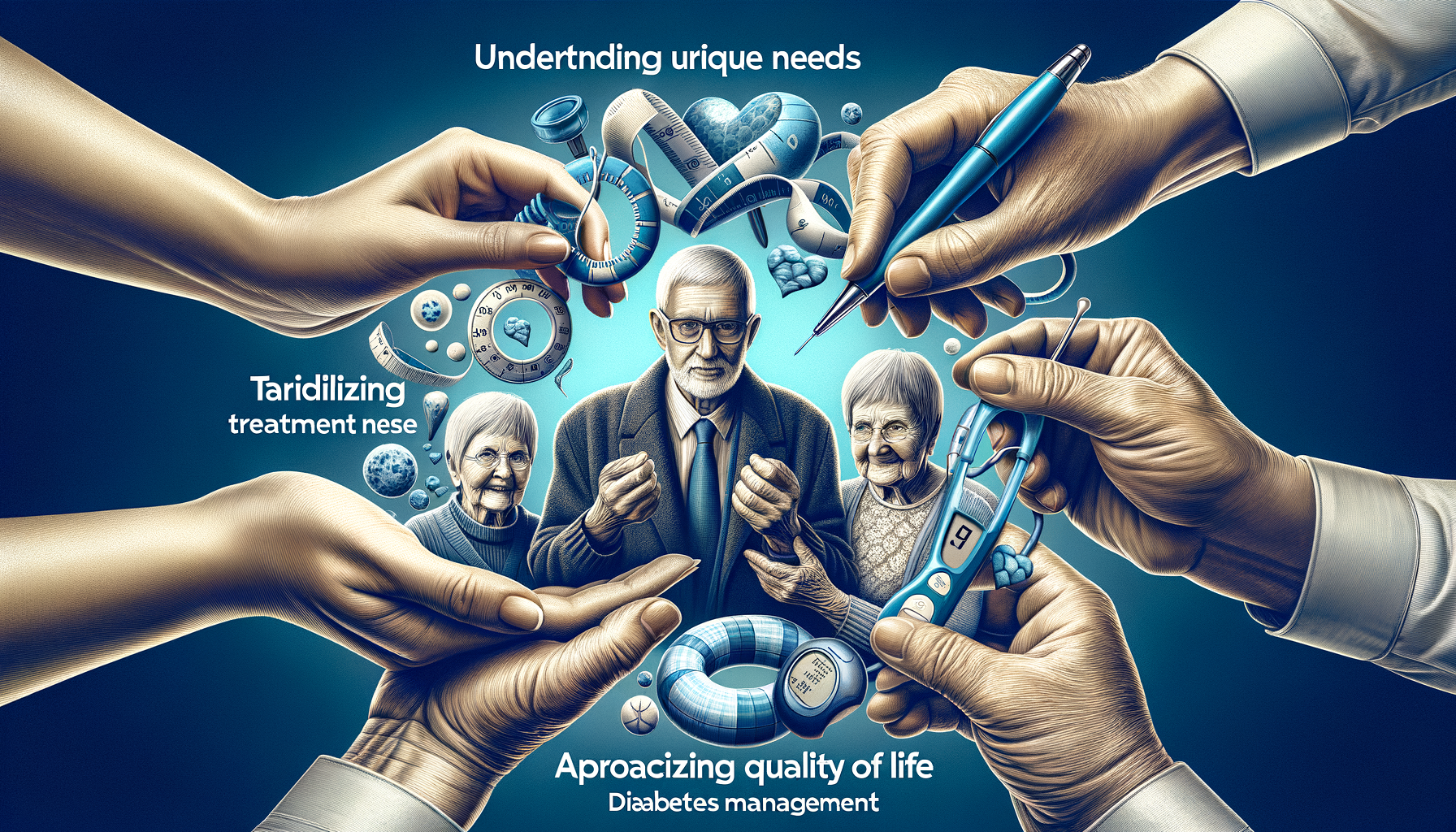How to Approach Diabetes Management for Individuals Over 80
Is navigating the complexities of health a concern for those in their ninth decade and beyond? Understanding the unique considerations when addressing specific health conditions becomes paramount. Exploring tailored approaches can offer valuable insights into maintaining well-being.

Understanding Unique Needs
As individuals age, their health needs become increasingly specific and complex. For those over the age of 80, managing chronic conditions such as diabetes requires a nuanced understanding of their unique needs. This demographic often faces multiple health challenges simultaneously, including decreased mobility, cognitive decline, and an increased risk of comorbidities. Consequently, diabetes management in this age group cannot follow a one-size-fits-all approach.
Older adults may experience different symptoms and complications associated with diabetes compared to their younger counterparts. For instance, hypoglycemia may present differently, with symptoms like confusion or dizziness being more prevalent. Additionally, the presence of other conditions such as arthritis or cardiovascular disease can complicate diabetes management.
Understanding these unique needs involves considering both physical and mental health aspects. Regular screenings and assessments can help identify any changes in health status, allowing for timely interventions. Moreover, involving caregivers and family members in the management plan can provide additional support, ensuring that the individual’s needs are met holistically.
Tailoring Treatment Plans
Creating a tailored treatment plan for managing diabetes in individuals over 80 is essential to address their specific health needs effectively. Such plans should incorporate a comprehensive approach that includes medication management, dietary adjustments, and lifestyle modifications. The goal is to achieve optimal blood sugar control while minimizing the risk of adverse effects.
Medication management is a critical component, as older adults often have different pharmacokinetics and pharmacodynamics. This necessitates careful selection and dosing of medications to avoid potential drug interactions and side effects. Regular monitoring of blood glucose levels and adjusting medications as needed can help maintain stability.
Dietary considerations are equally important. A balanced diet tailored to the individual’s nutritional requirements can aid in managing diabetes effectively. This includes focusing on whole grains, lean proteins, and plenty of fruits and vegetables, while limiting processed foods and sugars. Collaboration with a dietitian can provide personalized guidance that aligns with the individual’s preferences and lifestyle.
Physical activity should be encouraged, but it must be adapted to the individual’s abilities and limitations. Gentle exercises such as walking, swimming, or chair exercises can improve insulin sensitivity and overall health. Regular follow-ups with healthcare providers are essential to reassess and adjust the treatment plan as needed.
Prioritizing Quality of Life
While managing diabetes effectively is crucial, prioritizing the quality of life for individuals over 80 is equally important. This involves considering their overall well-being and happiness, not just their physical health. Quality of life can be enhanced by promoting independence, social engagement, and emotional support.
Encouraging social interactions and participation in community activities can improve mental health and reduce feelings of isolation. Support groups specifically for older adults with diabetes can provide a sense of belonging and shared understanding, which can be incredibly beneficial.
Emotional support from family and caregivers is vital. Open communication about the individual’s preferences and concerns can help tailor interventions that respect their wishes and promote a sense of autonomy. Additionally, addressing any mental health issues such as depression or anxiety is crucial, as these can significantly impact diabetes management and overall quality of life.
Ultimately, the aim is to create a supportive environment that allows individuals over 80 to manage their diabetes effectively while enjoying a fulfilling and meaningful life. By focusing on individualized care and quality of life, healthcare providers can help older adults thrive despite the challenges of managing a chronic condition like diabetes.